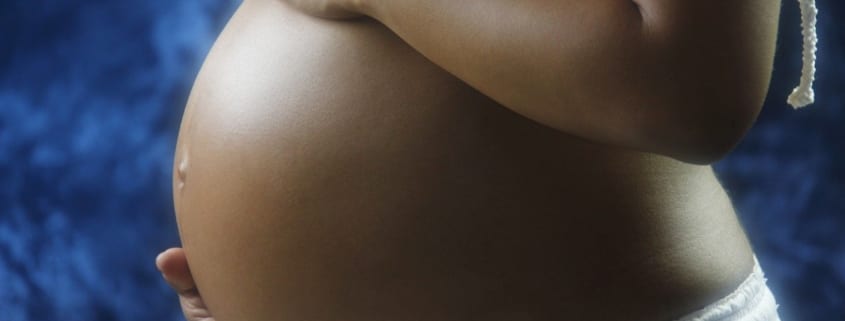Specialist mental health support for new mums available in every part of England
New and expectant mothers across the country can now access specialist mental health care in the area where they live, NHS England announced today.
The landmark rollout of specialist perinatal community services across the whole of England, means that mums and mums-to-be who are experiencing anxiety, depression or other forms of mental ill health should be able to access high quality care much closer to home.
Five years ago two in five parts of the country had no access to specialist community perinatal mental health treatment, but there is now full geographical coverage for the first time, with services in every one of the 44 local NHS areas, and plans to develop them further.
The expansion comes alongside the opening of four new mother and baby units, which mean that the most seriously ill women can receive residential care without being separated from their babies in every region.
Claire Murdoch, NHS national mental health director said: “Mental ill health during pregnancy or that affects bonding with a new baby can be devastating, which is why the NHS has invested in better care for expectant and new mums, with at least 9,000 extra women getting treatment last year.
“As well as expanding access to world-leading talking therapy for anyone who needs it – the NHS Long Term Plan is further ramping up specialist perinatal care for every part of the country, offering tailored support to dads and partners and extending care to cover the first two years of a child’s life.”
Specialist community perinatal mental health teams can offer psychiatric and psychological assessments and care for women with complex or severe mental health problems during the perinatal period. They can also provide pre-conception advice for women with a current or past severe mental illness who are planning a pregnancy.
Teams can be made up of doctors, nurses, social workers, psychologists, psychiatrists, occupational therapists, nursery nurses and administrative staff, who all work together to provide a comprehensive service to mums, depending on what their individual needs are. They also work closely with partners across the health and care system, including in maternity, health visiting, and other mental health services.
The expansion to the community teams is a key plank of wider plans to transform perinatal services. By 2023/4 an additional 54,000 women each year with moderate and complex, to severe mental health difficulties should get the right care, at the right time and as close to home as possible.
The NHS Long Term Plan also sets out a raft of new measures to improve care for new and expectant mums and their families, including:
- Making specialist community-based care available from pre-conception to two years after birth rather than one. Evidence suggests this is the most critical time in a child’s development and the period when infant separation anxiety can peak and may trigger a relapse of mental health difficulties, along with other changes in women and children’s lives.
- If a new mum is suffering from mental ill health, the NHS will automatically offer comprehensive assessment to her partner if they are suffering from mental ill health too and sign-post them to professional support if needed.
- Expanding access to evidence-based psychological therapies within specialist perinatal mental health services so that they also include parent-infant, couple, co-parenting and family interventions.
- Increasing access to evidence-based psychological support and therapy, including digital options.
- Maternity outreach clinics will join up maternity, reproductive health and psychological therapy for women experiencing mental health difficulties directly arising from, or related to, the maternity experience.
Mumsnet founder Justine Roberts: “We know from conversations on Mumsnet that the effects of mental ill-health in the perinatal period can ricochet; illness that goes untreated has impacts on mothers’ self-confidence in their own parenting, sometimes for years afterwards, with a knock-on effect for children and the wider family. Our users have talked movingly about the difficulty of accessing support, so it’s fantastic to see these specialist services being rolled out nationwide.”
Dr Trudi Seneviratne, chair of the perinatal faculty at the Royal College of Psychiatrists said: “This is fantastic news for all new and expectant mums, and for their families. 1 in 5 new mothers will experience some form of mental health difficulty and if left untreated, perinatal mental health problems can be devastating.
“A previous lack of specialist services has not only meant that some women couldn’t access the treatment they needed, but it also lead to mothers and babies often being separated at a key time in their child’s development. Providing everyone with access to the right care in the right place has always been our hope, and it’s now finally being realised in England. Hopefully this will cause a tipping point for other nations too.
“We now need to focus on building the perinatal mental health workforce whose job it will be to deliver these vital services.”
Emily Slater, Campaign Director at the Maternal Mental Health Alliance said: “The Maternal Mental Health Alliance’s (MMHA) Everyone’s Business campaign welcomes the opening of specialist perinatal mental health services in the remaining areas of England, meaning women should now be able to access life-saving care in their local area. We look forward to working closely with NHS England to ensure these services are of the highest quality and sustainable across the whole country to meet the needs of women and families.”
As many as one in four women will experience mental ill health during pregnancy or in the two years after birth, covering a wide range of conditions and different degrees of severity. It is estimated that as many as one in five hundred women may experience postpartum psychosis, one of the most severe forms of mental ill health affecting women in the perinatal period.
NHS England has already funded four new Mother and Baby Units (MBUs) in areas of the country which historically struggled to access specialist inpatient services close to home.
Mother and Baby Units (MBUs) support women who are experiencing the most severe forms of mental ill health to stay with their babies, helping them to bond at a critical time, while receiving around the clock care, treatment and support.
All four new MBUs are now offering care – three eight bedded units have opened in Kent, Lancashire and in East Anglia, with a further unit in Devon open.
NHS England plans to increase the national capacity further to more than 160 beds – providing specialist inpatient care and treatment to mums, without separation from their babies.



